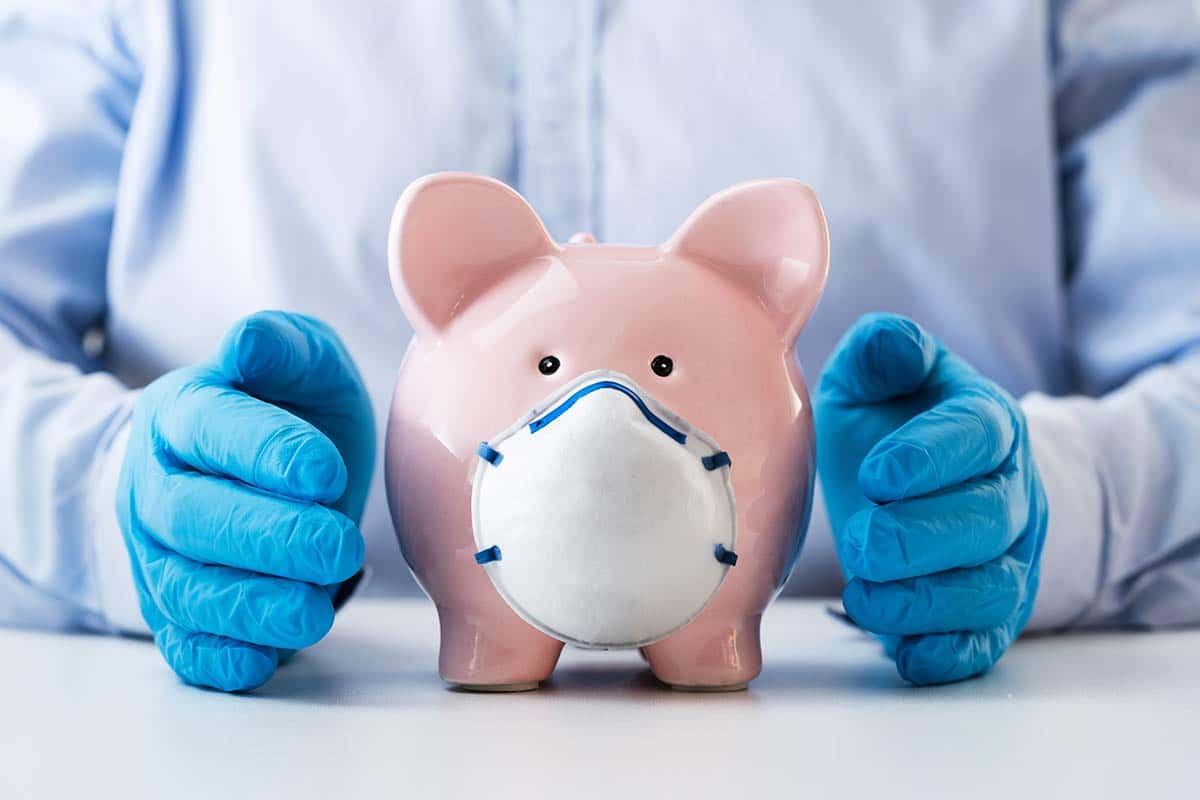Recently, many COVID-19 budgeting tips articles tout information that may sway the average consumer in the wrong direction. Budgeting during the coronavirus pandemic is actually a little different. Taking care of your ongoing fixed costs like mortgage and insurance can be difficult if you’re navigating a layoff. With restaurants and bars closing along with several other industries, facing economic uncertainty is pretty much a sure thing during difficult times like these. More than one million Canadians are out of work due to the novel coronavirus.
The Importance of Budgeting
Budgeting is the foundation for all of your financial goals. Whether you want to get out of debt, save up for a home, car, or vacation, or leave something for your family when you pass, budgeting is key. If you have yet to formulate a budget for yourself, now is the perfect time to set yourself up for the long term. Below you’ll find 6 COVID-19 budgeting tips you can use during the pandemic.
Categorize All of Your Expenses
A budget makes it a lot easier to categorize your expenses. Examples of your expense categories can include:
- Savings and investments
- Mortgage payments or paying rent
- Utilities
- Groceries
- Entertainment
- Transportation
- Insurance
- Medical
- Miscellaneous
You can customize your budget and get as granular as you like. The key here is to place every expense you have into its applicable category. Once you do that, it’s easy to identify non-essential spending (hint: entertainment, utilities, investments).
Balance Your Budget
Balancing your budget means watching your spending over the month. If you spend more than you planned for in one area, you have to account for it and reduce spending in another category.
One could argue that balancing your budget is quite similar to zero-based budgeting, where your monthly budget equals zero after you assign every dollar to an expense or category.
Minimize Credit Card Spending
Budgeting doesn’t mean you can’t spend money. However, now is not the time to accrue high-interest rate charges by pulling out your credit card. If you have absolutely no choice and don’t have an emergency fund, use your card for essentials.
Save Money
This is among the most hated of all COVID-19 budgeting tips. Mainly because most people struggling through the virus say they do not have any money to save after expenses. Keep in mind, you can employ as many or few tips as necessary. People often neglect saving money during “regular times.” Now is the time to ensure you put savings first. Make the habit of paying yourself before anything else. This can bolster your emergency budget for the future, as well as train you to always put some amount of income towards your own interests.
Budget for Recurring Events
Another major mistake is failing to budget for recurring expenses. For example, many people have to renew auto insurance every six months. Christmas, Hanukkah, important birthdays and other holidays come at the same every year. If you build these events into your budget, you can slowly build up your funds so you do not have to rely on credit or windfalls to pay for these items.
Financial Planning for Life Events
We usually think about getting married, buying a home, or having children when we talk about life events. But the pandemic has brought on thoughts of budgeting for end of life events such as:
- Major medical procedures
- Funerals
- Wakes
- Cremation
- Wills
- Trusts
- Attorney fees
Budgeting for life events (expected or otherwise) is critical. While you may not have the extra income for this sort of planning right now, add it to one of your categories and open a free chequing or savings account so you can start funding it when you’re ready.
COVID-19 Budgeting Tips: Adjusting for the Virus
If COVID-19 has affected you, it may mean cutting back on some expenses. It’s a necessity when you have to stretch every incoming dollar. If you’re finding it stressful, think of it as a temporary setback.
Look at your income and savings
Every budget consists of what you make and what you spend. The first thing to do amid the COVID-19 pandemic is figuring out your new monthly income. Doing so can help determine how deep your budget cuts must be.
Eliminate excess in the form of:
- Monthly subscriptions
- Gym memberships
- Cable
- Internet
- Association or club memberships
- Apps such as
- Spotify
- Audible
- Amazon Prime
- Scheduled date nights
- Internet
- Cell phone
- Groceries
For some of the essentials like cell phones or the internet, shop for less expensive alternatives. When it comes to groceries, try to buy essentials without making yourself starve or go without your favourite item.
Review the Rules of Support
The federal government and even financial institutions are offering support in the form of payment plans, forbearance, and more. Call your creditors to see if they will allow you to put holds on your student loans, mortgage, credit cards, or personal loans. Chances are, they have some sort of program made specifically in response to the COVID-19 pandemic.
Are you in need of more COVID-19 budgeting tips or financial literacy? Read more about coronavirus on our blog or contact us today to learn about your options.
Related:





